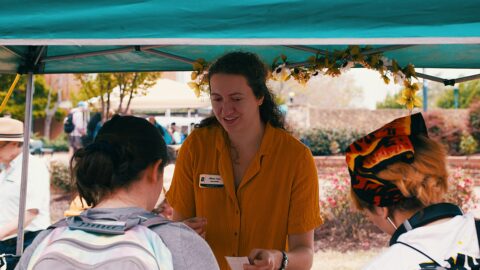Here at AVM we believe that volunteer managers are vital in ensuring any volunteering effort is directed, efficient, effective and recognised, along with the person and people behind that volunteering effort. We believe that, as we often see, organisations don’t always pay attention to the volunteering relationship in the way they should. We’re here to help our members feel a little less lonely and a little more heard.
The title of this blog is quite provocative, depending on whether you read it in a positive or negative voice. I would say if you are reading this, you probably would be on the side of positivity.
During this crisis we’ve seen communities pull together and ‘volunteer’ to help their friends, families and neighbours – this isn’t new, but is always vital to any society.
We have also seen a call for organised and coordinated volunteering – that usually comes from an organisation backing. This has also been closely followed by an outcry of dismay from volunteers who have not been put to use (yet). It’s always hard to get this right from the get go, and it’s even harder to coordinate an approach when the services, infrastructure, organisations and charities you would coordinate with have been decimated, stretched and diversified. I think it is safe to say that it’s even harder to know when the future is unknown and organisations are having to focus on cash flow – they have furloughed as many staff as quickly as possible and for as long as possible, to ensure they can be here on the other side of this crisis. Unsurprisingly this has included volunteer managers. But how do volunteer managers come back from here?
It’s too early to tell if they have succeeded and that will all depend on what we think success should look like and will be very personal to each individual involved.
I have started to hold network calls with members who have been furloughed – we know those on the call are a fraction of who have been furloughed but they do come from the full cross section of sectors involving volunteers. It’s clear they feel in the dark; they understand the why but they are frustrated. They want to know that their organisation’s volunteers are being thought about during any decision making made by their organisation’s leaders (they aren’t confident they will be – but this isn’t new). If volunteers are still delivering activities on behalf of the organisation, they want to know they are getting the same care and attention they know is needed. Will the volunteering offer be the same on return and if so, will it still work? How does the volunteering offer and output continue if our volunteers aren’t willing to come back in the same way? When will volunteer managers be able to explore this and advise? What repairs to the relationship on behalf of their organisation will they need to do? Will they be heard when they make a recommendation? Will they get the support (time and money) they need? Will they be allowed to make their organisation stronger and more resilient in the future? How crucial are their volunteers in what their organisation does?
These are lots of questions, and there are very few answers at this time. Depending on the organisation and their raison d’etre, the VMs line manager and director(s) and the timeframe they are/will be working within will all play a part in what happens next.
This blog may not be the most linear in topic but then none of the conversations I am having at the moment are. We will continue to talk with and listen to our members and find ways to help them get through this unusual time.
Rachel Ball is a Director of AVM, and a volunteer manager. At time of writing, Rachel is on furlough due to impact of the coronavirus pandemic.




